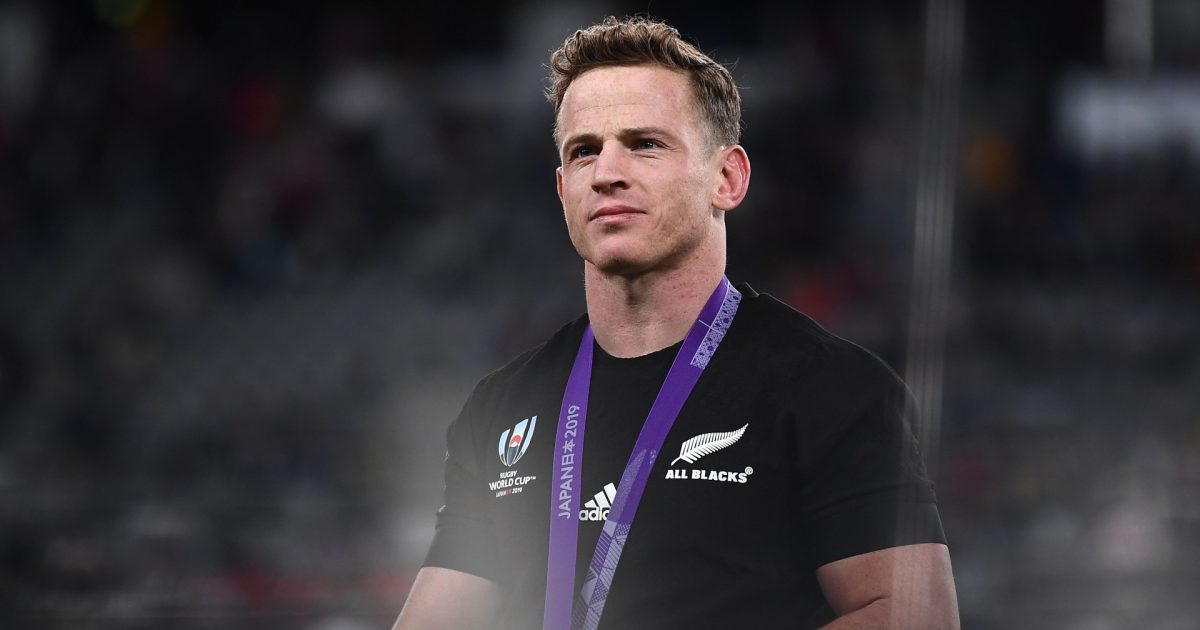Brad Weber relives career-altering 'kick up the ass' from Tony Brown

Brad Weber’s story is one of rugby’s best, being the third generation of Weber to wear the Hawkes Bay No. 9 jersey, going on to represent the All Blacks and winning a Rugby World Cup bronze medal. It’s the stuff of rugby legend, especially for his hometown.
Any visitors to the Weber household during the new Stade Francais recruit’s childhood may well have found Brad parked up in front of the TV, watching a VHS tape of the Magpies’ 1993 win over the British and Irish Lions – a game Weber’s father featured in, even scoring a try.
Weber’s journey to international rugby is a true reflection of the underdog mentality in his blood. Leaving his home province to attend Otago University, Weber landed an opportunity with Otago’s NPC team, an opportunity that was short-lived.
“So it was 2013 I think, Tony Brown was the head coach of Otago at the time and he brought me in and said that they’re dropping me from the Otago squad,” Weber told the All Blacks Podcast. “I wasn’t going to be in the squad that year and he laid out his reasons why.
“A lot of it was that he basically didn’t see me work on my game outside of the trainings that were prescribed by the trainers and coaches; that I wasn’t getting significantly better because of that.
“Looking back – obviously I was devasted at the time – but I think at the time I was really naive, thinking that just through getting older and just by doing the training what the trainers and the coaches had prescribed to you, that that’s going to be enough to get better. But it wasn’t.
“I’m really, really grateful to Brownie for doing that and making me realise that, and I remember thinking from that moment on that I’ll never allow a coach to say that Brab Weber doesn’t work hard at his game.
“It was a huge moment for me and the kick up the ass I needed because I’m not the most talented guy. I was never a gun at school, so I actually have to squeeze every bit of talent out of me, actually working for it and Brownie made me realise that.
“From that moment on I worked my ass off to be a better rugby player and work on my game and so when I got an opportunity a few months later with Waikato halfway through the season, I just remember thinking, I’m not going to let this chance go. And because of the work that I’d done since that moment that Brownie dropped me, I finished the season with some of the best few games that I’ve had.
“I think it was about two weeks in, I had a real good game against Auckland and then Dave Rennie was around at my house the next day offering me a Chiefs contract.
“So, within two weeks I’d gone from playing Otago development, the B team, to getting a Super Rugby contract with the Chiefs – probably because of the kick up the ass that I got. I wish I wouldn’t have needed that and I was lucky I got another opportunity.
“I really tried to turn that disappointment into a positive and then the rest is history like they say.
“But from that moment on, even through my Chiefs career and All Blacks career, I’ve tried to work my butt off to make the most of any opportunities that I’ve got.”
In his three-year Waikato career, Weber would go on to captain the side and win them the Ranfurly Shield in a game against his beloved Hawkes Bay. The following season, in 2016, he followed in his father’s and grandfather’s footsteps by donning the Magpies kit where he has since racked up 50 caps.









































































